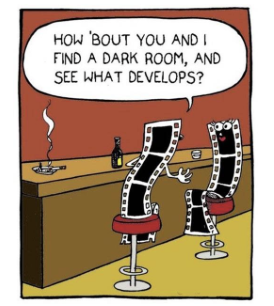Clean Line has entered what it describes as a "partnership" with GE to build three AC/DC converter stations for its beleaguered Plains & Eastern Clean Line project. Partnership? I don't think so, because it sounds more like Clean Line simply hiring a supplier.... a supplier it has no money to pay.
This will be GE’s first HVDC project in the United States since acquiring Alstom’s energy portfolio last year. This addition to our portfolio was critical.
I wonder if GE has heard about the lawsuit filed in federal court that alleges the U.S. DOE exceeded their statutory authority in their review and agreement to "participate" in this project? Does GE know that the U.S. DOE does not have the authority to condemn and take easements for a Section 1222 project? And without easements, there's no place for Clean Line to build anything.
Yeah, good luck with that, GE.
But, hey, at least GE beat rival Siemens to a worthless contract with a company that can't get its projects off the ground. After years of patsy Siemens stumping for Clean Line in Arkansas, Clean Line dumped them and inked a contract with their rival. And how awkward are things going to get in Houston, doing business with two rival companies? Clean Line announced years ago that it had signed an "exclusive agreement" with Siemens to develop, design and implement the converter stations for its Rock Island project. Now that Clean Line and GE have become the Plains & Eastern converter station Bobbsey Twins, is Siemens' Rock Island converter station "agreement" about to be reneged? I'd have to think that GE must have given Clean Line a much better price for the Plains & Eastern converter stations than Siemens, and, if so, why is Clean Line content to pay more for Siemens converter stations for Rock Island?
Ahhh... the kerfuffles that can ensue when a company signs "exclusive agreements" to obtain supplies from vendors years in advance of final engineering. Who does that? Probably not the majority of transmission owners, who prefer to source a project competitively when they're actually ready to build and have financing in place to back up any contracts that they sign.
Or is this just the tip of the iceberg? Will we now see Clean Line jettison a whole bunch of "exclusive agreements" when the rubber finally hits the road?
And I do wonder if GE will be required to use local labor to build the converter stations? Since GE's real muscle is the former French company Alstom (gobbled up in 2015), will the actual components be built in France and merely shipped to U.S. sites for assembly by GE contractors?
None of this ridiculous fanfare about GE contracting to supply the converters is even necessary. Other transmission owners don't need to drum up media interest every time they sign a contract with a supplier. Clean Line does it because it allows them to hide behind a cloud of smoke and pretend their projects are making headway, instead of answering the hard questions, such as:
Where are the customers?

 RSS Feed
RSS Feed